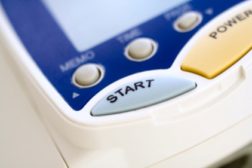Home » study
Articles Tagged with ''study''
Hormone changes can be minimized
Read More
Scuba diving helps vets with spinal cord injury
Johns Hopkins researchers find ‘dramatic’ results in small preliminary study
September 19, 2011
Become a Leader in Safety Culture
Build your knowledge with ISHN, covering key safety, health and industrial hygiene news, products, and trends.
JOIN TODAYCopyright ©2024. All Rights Reserved BNP Media.
Design, CMS, Hosting & Web Development :: ePublishing




